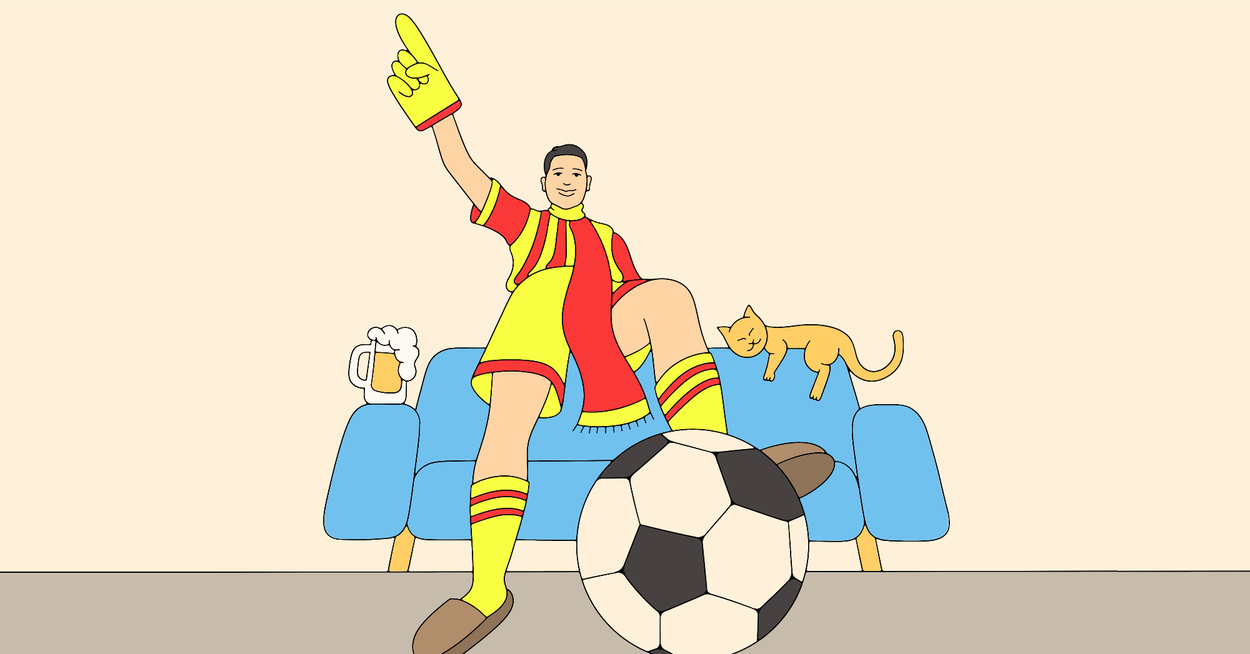[ad_1]
The reason our men’s team has never reached the sport’s highest echelon, I deduced from my earliest years as a sports fan, was because American men didn’t care about soccer. What else could explain the disorienting dissonance? America was richer than everybody else, cared deeply about athletic competition, and won the most medals at each Olympics. Surely we would prove superior at men’s soccer, too, if only our most physically adept boys weren’t dreaming of becoming running backs and shooting guards.
From what I understood, soccer was too low-scoring to satisfy our cravings for blunt excess, and required too much finesse for our fetishization of toughness. The European and South American players who exaggerated falls and injuries embodied the softness of socialist policies that punished hard workers while rewarding shortcutters. A country mythologized on grit and merit produced people like Ronnie Lott, the NFL player who asked to have his mangled pinky chopped off so he could stay in the game; Willis Reed, who hobbled on a torn thigh muscle to inspire his team to win the 1970 NBA title; and Mickey Mantle, who smashed home runs while hungover. For a nation rooted in primal might and arrogant isolationism, ineptitude at men’s soccer wasn’t something to be ashamed of but a badge affirming our exceptionalism.
I bought into this idea as well. My introduction to soccer came in first grade, when I joined my school team. While I excelled in baseball and basketball, I was useless at soccer. I couldn’t seem to kick the ball straight or with any respectable force. In three years of grade school competition, I scored a grand total of one goal, an event so monumental that my mom rewarded me with a Lego set after the game. During my final year playing soccer, in third grade, I asked to switch to goalkeeper, where I figured my hand-eye coordination could finally be put to use. We lost 3–1. I never played goalkeeper again, and once the season ended, my days of competitive soccer were over.
I preferred to spend my autumn playing the sport I loved most, American football, a game of conquest through violent force, knocking your opponent backward to seize their territory until you reach the other side to earn your manifestly destined touchdown. As my mom and I moved around California over the years and I repeatedly found myself as the new kid at an unfamiliar school, my athletic skills earned me immediate friendships with the most respected boys in class. In high school, my feats on the football field got me featured in newspapers and lured college recruiters. Even though we lost most of our games, our stands were filled with classmates chanting our names.
Soccer was far from my mind, though rarely far from sight. The first-generation immigrant Mexican kids at my high school kicked around a soccer ball at lunch. One of my white college roommates hung a Manchester United banner above his bed. In 2009, ESPN signed a broadcast deal for the rights to the English Premier League and started promoting the games it was featuring. When I was in grad school in New York City in 2010, I crammed into a bar in Midtown Manhattan to watch the US men’s soccer team lose to Ghana, ending a promising (by American standards) World Cup run. As more research revealed the brain trauma football causes, fewer parents were letting their kids play, and I wondered if the sort of boys who used to dream of playing running back now spent their autumns trying to be like Lionel Messi.
[ad_2]


